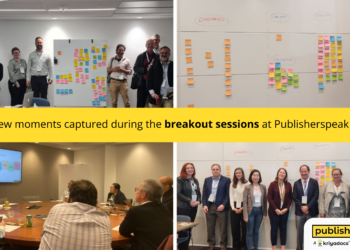Denizens of the library and publishing worlds are stroking their chins, scratching their heads, or, in some cases, pumping their fists in the air in response to the announcement yesterday that Judge Denny Chin has rejected a settlement proposed by Google and the Authors Guild to the class-action lawsuit brought by the Guild against Google in response to Google’s mass-digitization of millions of books housed in some of the Western hemisphere’s most comprehensive research libraries.
Among other terms, the settlement would have made the digital images of those books freely available at terminals located inside library buildings, and would have also provided remote access to authenticated library users in return for a subscription fee. The settlement provided for the establishment of a registry that would administer royalty payments to authors. The contents of many of the books in the Google corpus are already fully searchable and snippets from them viewable online; Google’s stated plan is ultimately to scan as many as 130 million titles.
Judge Chin’s finding cites a number of concerns with the proposed settlement, among them the fact that it would “grant Google significant rights to exploit entire books, without permission of the copyright owners” and the unprecedented control that it would have granted to Google over “orphan works” (books still technically under copyright, but whose copyright holders have proven impossible to locate or identify).
Although the current version of the settlement has been rejected, the Google Books project is not dead. Chin pointed out that many of his “concerns would be ameliorated if the ASA [Amended Settlement Agreement] were converted from an ‘opt-out’ to an ‘opt-in’ agreement” (requiring authors to join the settlement affirmatively rather than forcing them to opt out if they do not wish to be party to it), and he issued his denial of the motion “without prejudice,” leaving the door open for a revised settlement to be brought to him at a later date.
Google’s response was muted in the initial hours following Judge Chin’s ruling. In one published report, Google’s managing counsel was quoted as calling the decision “disappointing” and saying that Google is “considering its options.”
As of this writing, Chin’s decision is only a few hours old; there will be much more discussion (and more insightful commentary than this) in the days to come. The Association of Research Libraries is reportedly working on an analysis already.
Discussion
4 Thoughts on "Google Book Settlement — Opponents 1, Google 0"
Actually, the scoreboard should read 2-0 since this is the second rejection of the proposed settlement.
Since the benefit to Google was to obtain a unique insurance policy against suit by authors of orphan works at a relatively modest cost, available to no other mass digitization project, the judge’s denial of this benefit to Google leaves one wondering what motivation Google would have to continue the project, instead of just going on with the original “opt-in” project with publishers, which does not require any settlement. Google’s radical effort to change the rules of the copyright game from “opt in” to “opt out” has been repudiated by this court, which may be a strong signal to Google that it cannot easily succeed in the Second Circuit by letting the original suit continue. It will be interesting to see what next step Google takes–and whether Congress steps up to the plate and finally passes the much delayed legislation on orphan works supported by both librarians and publishers. In some ways, the situation is similar to what happened after the Supreme Court rendered its split 4-4 decision in the Williams & Wilkins photocopying case, which was a signal to Congress that it needed to resolve the problem, as it did in passing the Copyright Act of 1976 with Section 107 codifying fair use for the first time.
It seems like by far the best result would be for Congress to step in craft a smart update to copyright law to cover the frequently encountered difficulty/expense/impossibility of contacting rights owners for older works.
But Congress in essence created this problem by eliminating the requirement to register copyright extensions. And the most recent few copyright bills have been abysmal from the standpoint of the public good (Sonny Bono Act, I’m looking at you). So how much confidence should anyone have that Congress will do the right thing?




